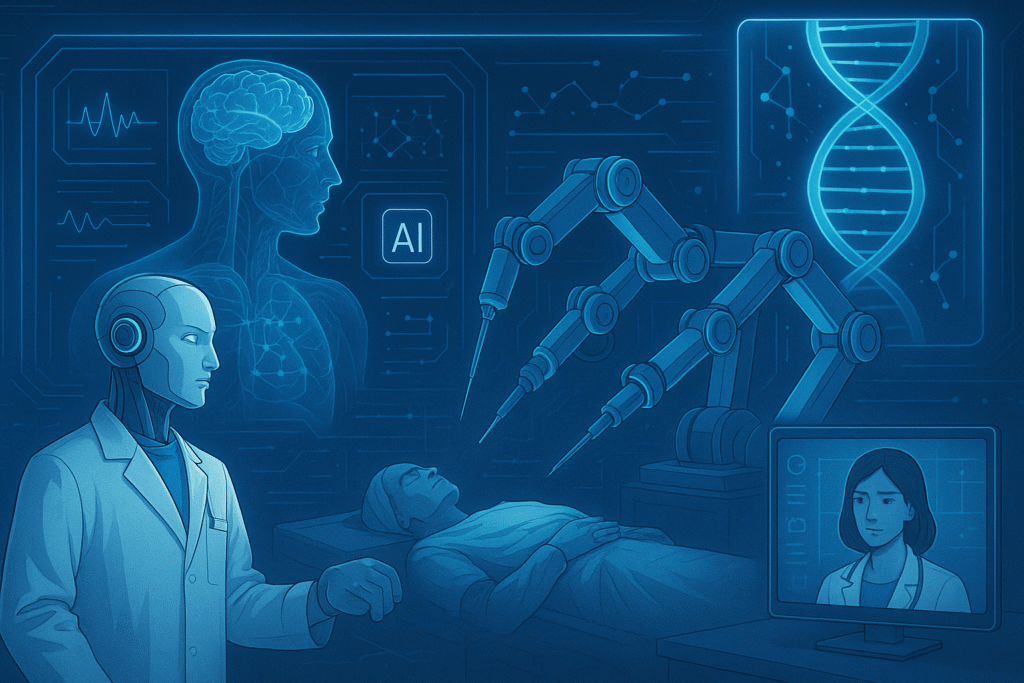Artificial intelligence may not be a classic “gizmo,” but it’s become an undeniable, rapidly evolving force in healthcare. From streamlining clinical workflows to flagging anomalies in imaging, algorithms are working their way into nearly every corner of medicine.
The jury’s still out on just how useful, safe, or transformative these tools will ultimately be. But there’s no shortage of momentum—or headlines. So here’s a curated look at some of the most noteworthy AI-in-medicine developments from the past month.
🔮 Predictive and Personalized Medicine
- Meet Your Digital Twin: This AI Model Can Predict Your Future Health (Weizmann Institute of Science)
- AI predicts patients likely to die of sudden cardiac arrest (Johns Hopkins University)
- AI model detects hidden diabetes risk by reading glucose spikes (Scripps Research Institute)
🦠 Disease Detection and Diagnostics
- How AI Can Enhance Early Detection of Emerging Viruses: UNLV Study (University of Nevada, Las Vegas)
- AI microscopy improves parasite detection within primary health care (Karolinska Institutet)
- HKUST develops AI medical imaging technology, cuts radiation 99% (Hong Kong University of Science and Technology)
- AI identifies hidden heart valve defects (Imperial College London)
- AI boosts eye disease prediction (University of Edinburgh)
- Artificial Intelligence Accurately Classifies Pancreatic Cysts (Memorial Sloan Kettering Cancer Center)
- AI tool accurately detects tumors on breast MRI (University of Washington, Microsoft)
- Mayo Clinic researchers develop AI tool to detect surgical site infections from patient-submitted photos (Mayo Clinic)
- ECU-developed AI to revolutionise early disease detection (Edith Cowan University)
- Montreal researchers use AI and wearable sensors to detect inflammation before symptoms appear (McGill University)
💊 Drug Discovery and Therapeutics
- Australians join elite group of scientists using AI to create man-made proteins (Monash University)
- DeepMind Isomorphic Labs prepares for first human trials of AI-designed drugs (Isomorphic Labs – DeepMind/Alphabet)
- Forging a novel therapeutic path for patients with Rett Syndrome with AI (Wyss Institute at Harvard University)
🧬 Cancer and Complex Conditions
- Study shows how AI could help pathologists match cancer patients to the right treatments—faster and more efficiently (Icahn School of Medicine at Mount Sinai and Memorial Sloan Kettering Cancer Center)
🧠 Brain and Imaging Technology
- New tech: Imaging brain waves could advance disease research with AI (Stanford University)

